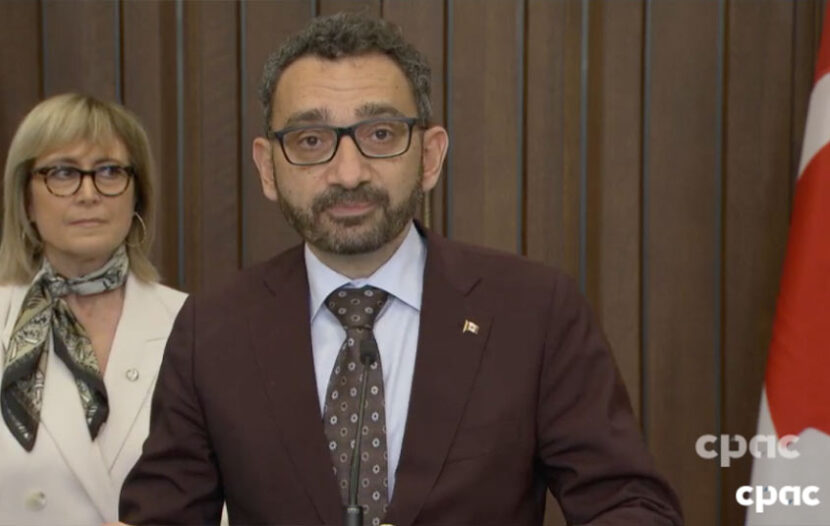OTTAWA — New legislation has been introduced by Ottawa to bolster accountability at airports and create a transportation sector that’s more efficient and transparent.
Speaking yesterday, June 20, at Parliament Hill, Transport Minister Omar Alghabra announced Bill C-52, tabled in the House of Commons, which would pave the way for new rules requiring airports and other airport operators to create service standards and publish data that can be compared against those benchmarks.
Ottawa says these standards could track outcomes ranging from security screening wait times, to how long it takes luggage to reach the carousel.
The Bill would aim to improve transparency and accountability in three areas of the federal transportation network:
Part I would enact the Air Transportation Accountability Act, which would:
- Ensure shared accountability by permitting the creation of regulations requiring airports and other operators within airports to create service standards for their part of the passenger journey, and require them to publish their performance against these standards. Examples could include how long it should typically take for a bag to arrive on the carousel, or the expected wait time to enter security screening;
- Create a formal process for notifying and consulting the public on changes to airspace designs that affect aircraft noise near airports to ensure that communities that would be potentially affected by such changes can be engaged;
- Require airports to publish and report on their pollution reduction plans to help achieve net-zero goals; and
- Require federally incorporated airport authorities to report on diversity among their directors and senior management.
Part II would introduce changes to the Canada Transportation Act to help achieve a barrier-free Canada for persons with disabilities. Transportation service providers would have to collect and provide accessibility data to the Minister of Transport and the Canadian Transportation Agency, which will help more quickly identify barriers in the system.
Part III would amend the Canada Marine Act to provide greater transparency on how ports set their fees by requiring Canada Port Authorities to follow certain principles when establishing or changing port fees. In addition, it would create a process for people, including port users and tenants, to challenge a new or revised fee through the Canadian Transportation Agency.
Noting the many disruptions in air travel in the last few years due to staff shortages and unprecedented travel demand following the pandemic, Minister Alghabra said that Canadians deserve a “smooth and efficient transportation system,” and that a single disruption in one part of the system can have wide-ranging effects across the entire network – and, in fact, across the entire globe.
“Together, the measures in this proposed legislation would help create a more accountable, transparent and accessible national transportation system that meets the needs of Canadians,” said the Minister.
When asked what assurances he has that these new standards will work, particularly for air passengers who have missed flights and submitted compensation claims, Minister Alghabra acknowledged that there have been “many frustrations” with the complaint process. This, he added, “is why we have – in addition to strengthening passenger rights – implemented new processes and tools for the CTA (Canadian Transportation Agency) to be able to process complaints faster and hold airlines accountable for the number of complaints.”
What this new framework does, he added, as proposed in Bill C-52, is “ensure a shared accountability framework for the entire sector,” which he described as highly inter-dependent.
“Once you set a service standard, then airports will be accountable to airlines, airlines will be accountable to airports, NAV CANADA will be accountable to airports and airlines, ensuring that all this interdependence is transparent and accountable, and that there are consequences for those who don’t hold up to their standards,” said Minister Alghabra.
The Minister was also asked whether he’s confident Canadians won’t see a repeat of last summer, with all its flight delays, cancellations and long airport lineups.
“I have been in regular contact with airports, airlines and other stakeholders and making sure that many of the systemic failures that took place last summer are not repeated. I am receiving commitments from airlines and airports that they are more ready this year than they were last year, in terms of staffing, processes and operations,” he said, adding that he was just in contact with airports and airlines the previous day to remind them of their responsibility to passengers.
“We’re doing two things: we’re ensuring that the sector is aware of their obligation and that they’re prepared, but we’re also strengthening the protections for customers so airlines are held accountable if they don’t deliver,” he concluded.

